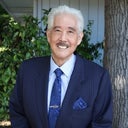Thank you for your question. To support wound healing, reduce inflammation, and promote optimal recovery, focus on a diet rich in protein (to provide amino acids needed for tissue repair), antioxidants (berries, spinach, kale, and nuts), healthy fats (avocados, olive oil, fatty fish, nuts, and seeds) and fiber-rich foods (whole grains, fruits, vegetables, and legumes). Supplements that promote healing include Vitamin A (Sweet potatoes, carrots, and spinach), Vitamin C (Citrus fruits, strawberries, and bell peppers), Zinc (Shellfish, nuts, seeds, and whole grains), Omega-3s (Fatty fish, flaxseeds, and walnuts), Vitamin B (Poultry, eggs, fortified cereals, and leafy greens), and Iron (Lean red meat, spinach, and lentils). Staying hydrated is essential for skin elasticity and efficient healing. Certain supplements, such as Vitamin E, garlic, ginseng, ginkgo biloba, and NSAIDs (ibuprofen, aspirin), can thin the blood or interfere with healing. Before starting any supplements, discuss them with your surgeon to ensure they are safe and won’t interfere with your recovery or medications.









